
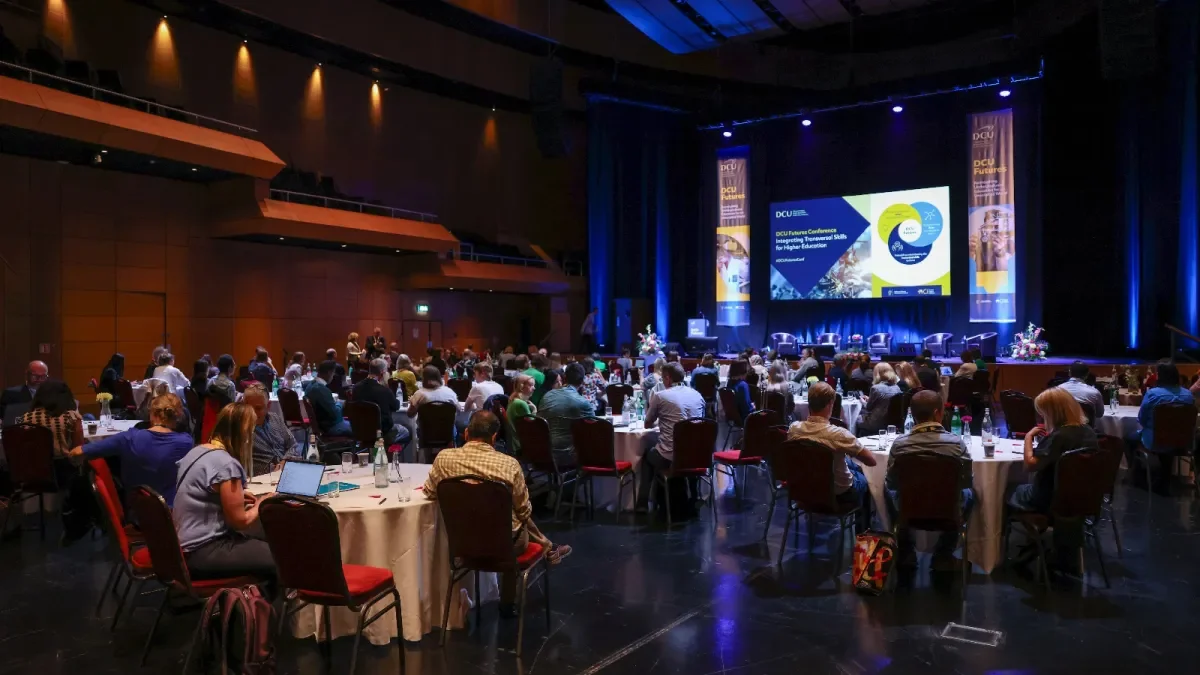
DCU Futures Transversal Skills Conference held in The Helix
DCU Futures is the most ambitious innovation in teaching and learning in the history of DCU. Operating as a blueprint for the University and funded by the Human Capital Initiative, this €19.9 million project is an unprecedented commitment to radically re-imagine undergraduate education for the 21st century to meet the challenge of empowering students to be future-capable and thrive in an increasingly unscripted world defined by volatility, uncertainty, complexity, and ambiguity.
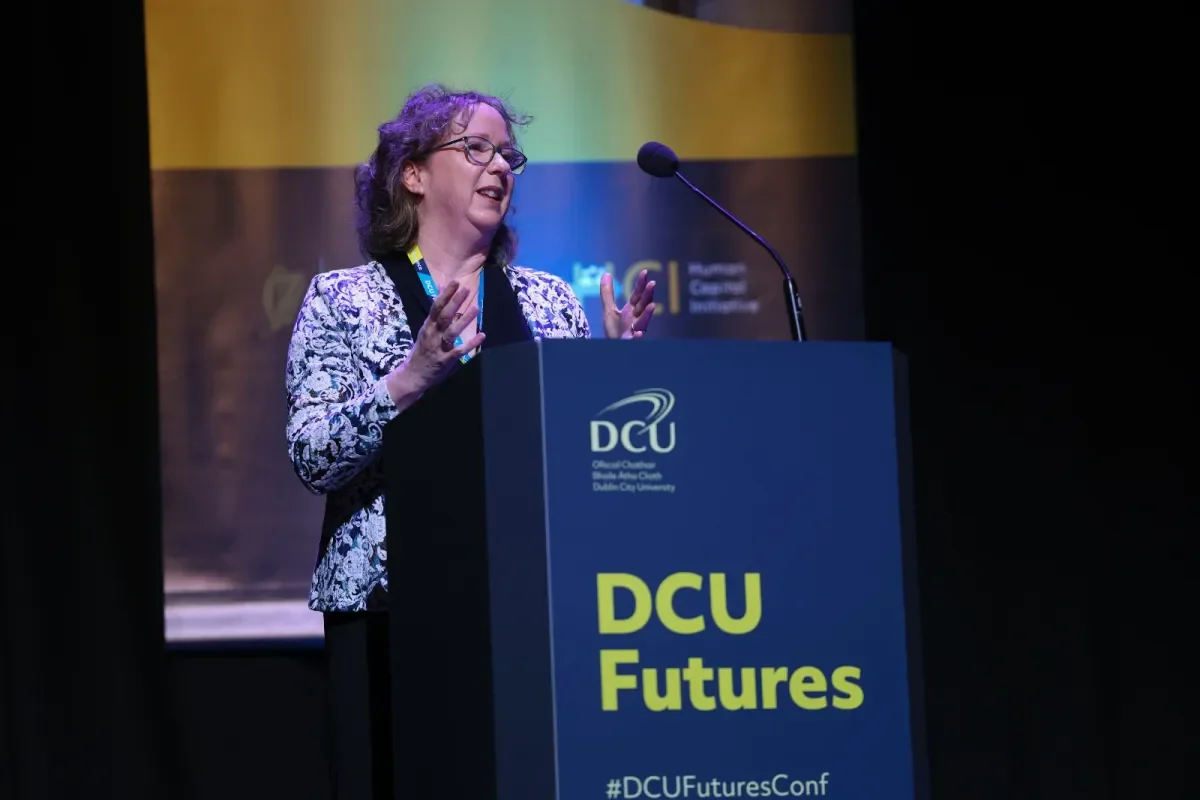
Professor Lisa Looney, DCU Vice President for Academic Affairs and Registrar, opened the conference by welcoming attendees, noting the diverse range of those in the room; DCU colleagues both familiar and unfamiliar with transversal skills, external academics both with expertise in transversal skills and those who are curious about them, as well as external policy makers and other stakeholders who are interested in transversal skills. Professor Looney also pointed out that to do transversal skills well requires investment of time, energy, intellect and, to varying degrees, financial resources.
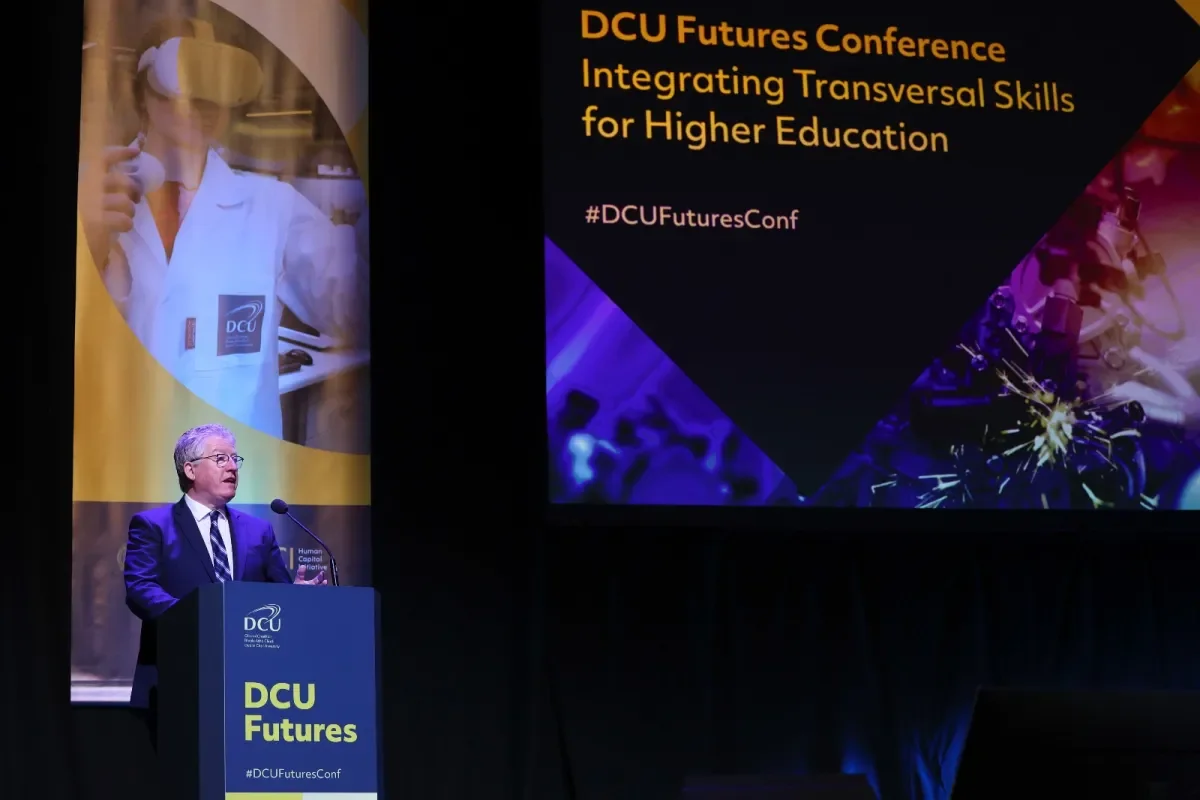
DCU President Professor Daire Keogh, in his address to the conference, noted that DCU is committed to being a leader in the Transversal Skills space, and that these skills empower students and graduates to make an impact and effect change - to, as the DCU mission states, ‘Transform lives and societies.’
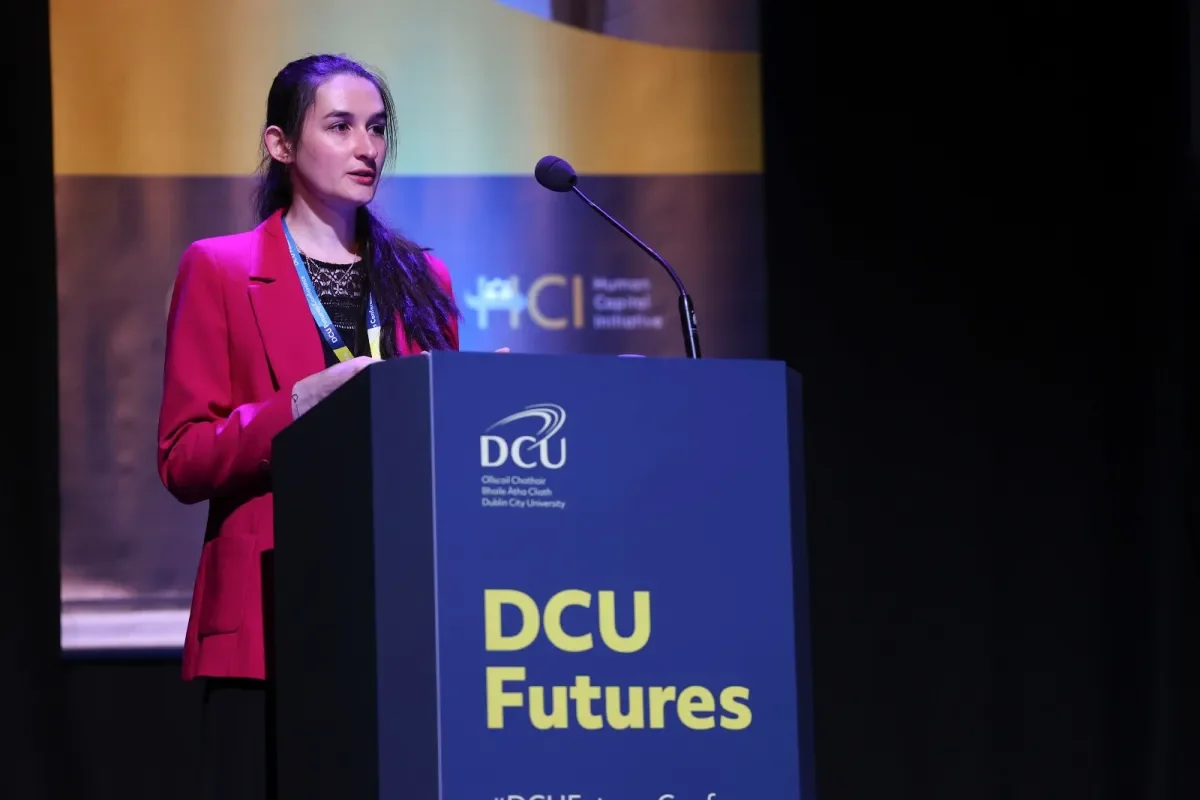
Céline Jambon, Policy Officer in the Skills Agenda Unit of the European Commission, was the first external speaker on the day. She spoke about the European Year of Skills, and its intention to further promote a mindset of reskilling and upskilling, feeding into the overall European Skills Policy Framework - key competencies for lifelong learning that aim to let individuals thrive in a constantly changing environment. She finished by outlining a number of actions regarding higher education that are required, part of the European Strategy for Universities.
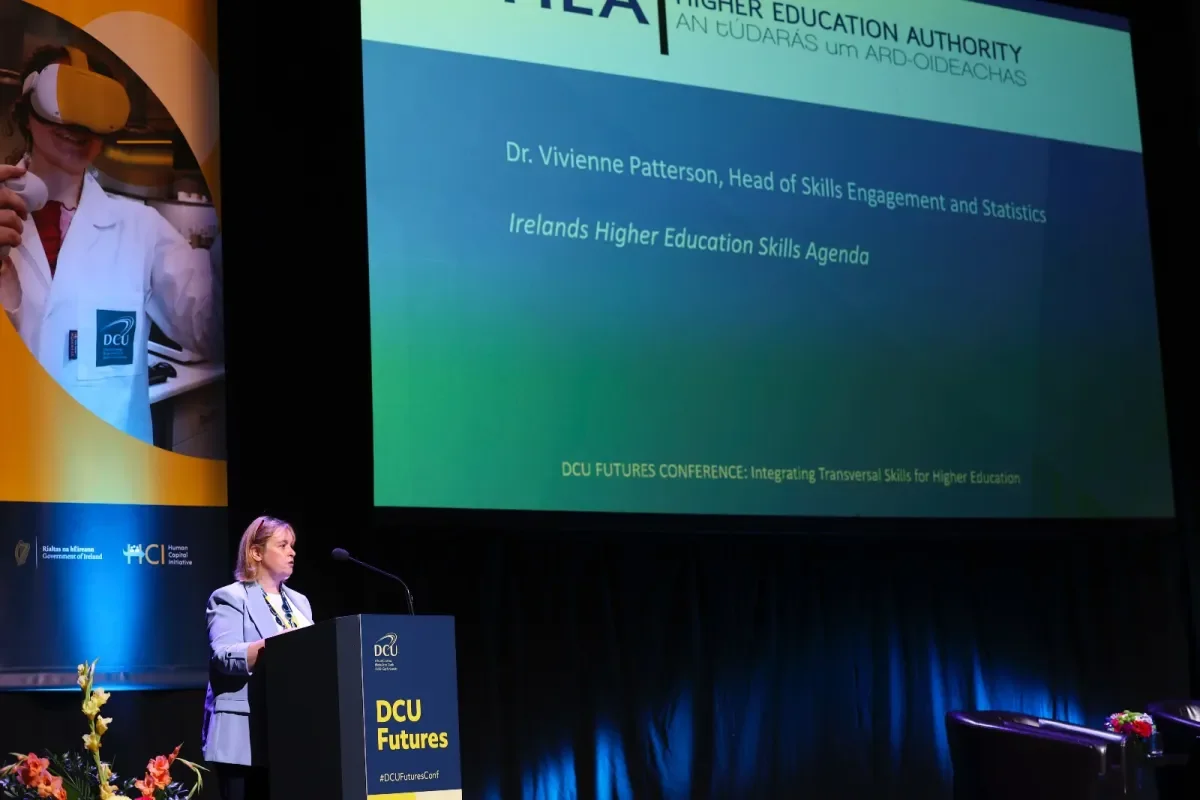
Dr Vivienne Patterson, Head of Skills Engagement and Statistics at Ireland’s Higher Education Skills Agenda spoke of the wider importance of transversal skills across further education in Ireland, and the important work being done in the DCU Futures project in defining transversal skills. The national, annual Student Survey (which is currently under review) was also pointed to as an important way of measuring student engagement with and understanding of transversal skills. Ireland alongside Luxembourg is forecast to have the highest annual employment growth over the period 2021-2035 at 1.7%, compared to the EU-27 average rate of 0.2%, and it is vital that those graduating in that time are prepared for a dynamic workforce.
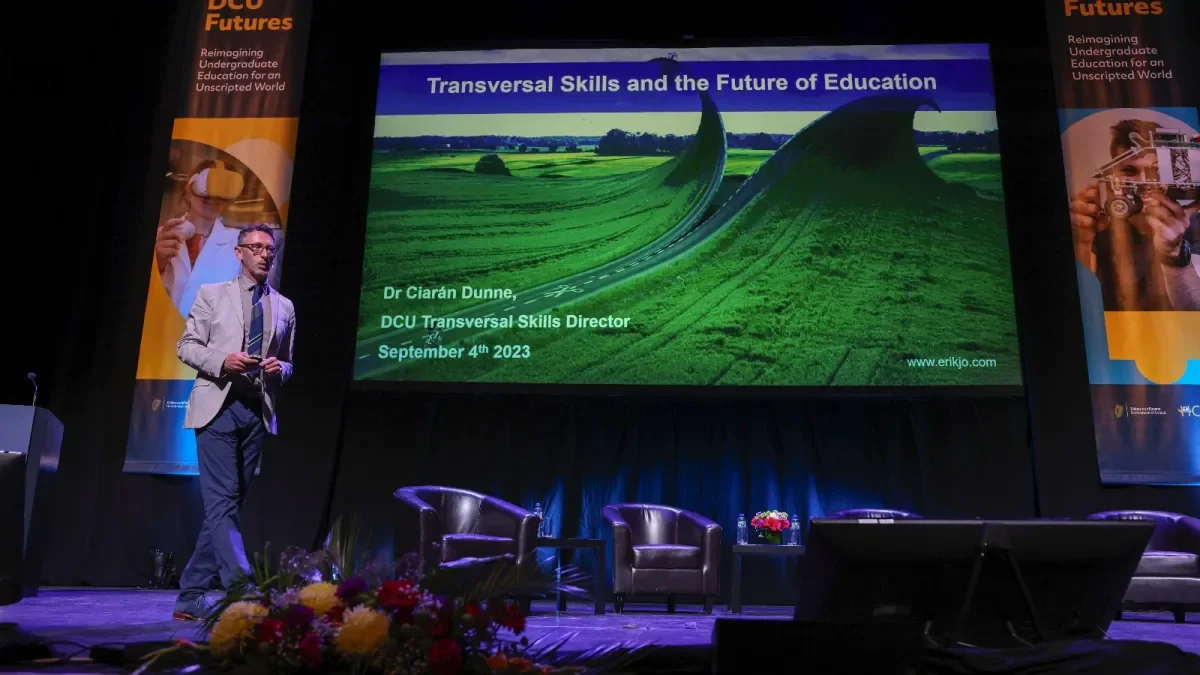
Dr Ciarán Dunne, Transversal Skills Director at DCU, outlined the rationale behind the focus on transversal skills and the importance of investing in them and developing a pattern of lifelong learning. Dr Dunne also echoed Professor Daire Keogh in stating that improving transversal skills shouldn’t compromise the level of knowledge students obtain in their education. He defined DCU Futures as a radical re-imagination of the curriculum, and outlined the challenges of embracing transversal skills but also the importance of doing so. Essentially, Dr Dunne noted, transversal skills are not new to higher education but are increasingly a ‘must-have’ rather than a ‘nice-to-have’.
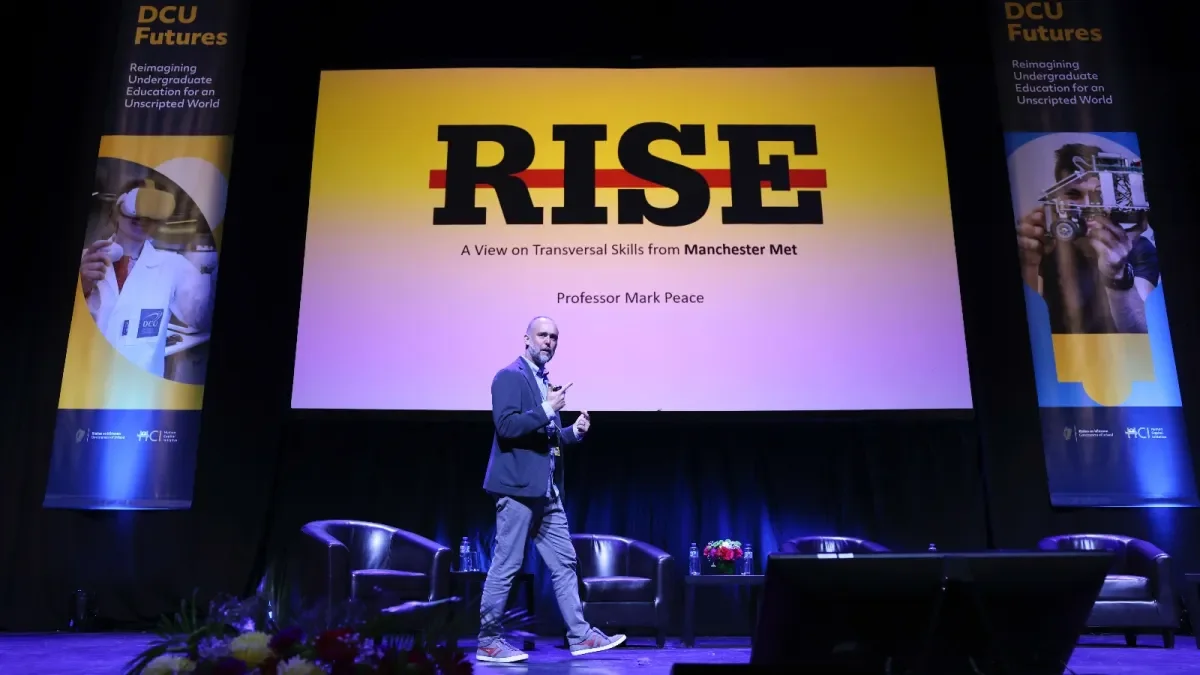
Professor Mark Peace (Professor of Innovation, Lead for Innovation Education and Initiatives at Manchester Metropolitan University) outlined a practical and successful application of encouraging the development of transversal skills in further education, explaining the ‘Rise’ programme to those in attendance. Rise is open to all students at the Manchester Metropoloitan University, enabling them to “over-credit” their degrees with additional units based on engagement with employment, which can include short courses, learning new skills or taking up a work placement.
Throughout the day, attendees also took part in a number of interactive workshops, led by Dr Kate Daubney, Curriculum Innovation Practitioner. Day 1 of the conference concluded with a panel discussion on the rationale for change in higher education, with Claire McGee, Head of Education and Innovation Policy at IBEC, William Beausang, Assistant Secretary at the Department of Further and Higher Education, Research Innovation and Science, Professor Mark Peace and Professor Blánaid White, Dean of Strategic Learning Innovation, DCU.
For more information on DCU Futures and Transversal skills, please follow this link.
